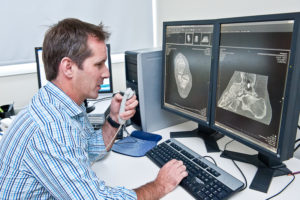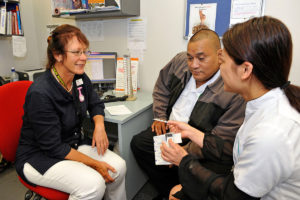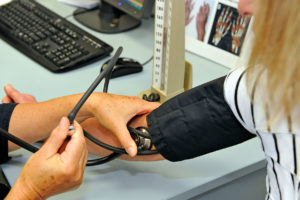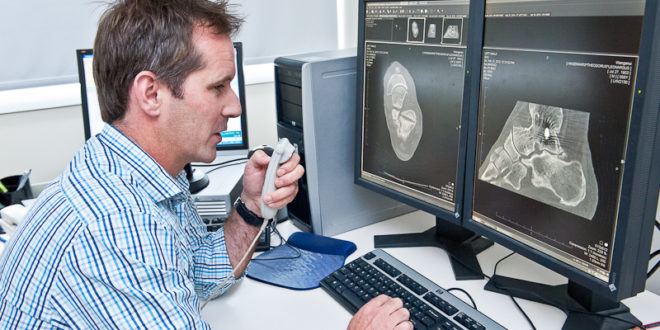 Choosing Wisely is part of a global initiative that has been implemented in a number of countries, including USA, Canada, the UK, Australia and some of Europe. It aims to help create a culture where patients and health professionals can have valuable, informed conversations about a patient’s care – avoiding unnecessary tests, treatments and procedures that may provide little or no benefit to a patient and could even cause harm.
Choosing Wisely is part of a global initiative that has been implemented in a number of countries, including USA, Canada, the UK, Australia and some of Europe. It aims to help create a culture where patients and health professionals can have valuable, informed conversations about a patient’s care – avoiding unnecessary tests, treatments and procedures that may provide little or no benefit to a patient and could even cause harm.
This month, we want to discuss health checks.
Like many people, you may schedule a yearly check-up or “annual physical” with your health professional. It usually includes a health history, physical exam and tests. It is important to have a regular health professional who helps make sure you receive the medical care that is best for your individual needs. But healthy people often don’t necessarily need annual physicals, and those check-ups can do more harm than good.
Here’s why:
- Annual physicals usually don’t make you healthier
There have been many studies of the effects of annual check-ups. In general, they probably won’t help you stay well and live longer. And usually they don’t help you avoid hospital stays or keep you from dying of cancer or heart disease.
- Tests and screenings can cause problems
Most people should only have a test or exam if they have symptoms or risks factors. One problem is getting a false-positive result. These false alarms can cause anxiety, and unnecessary follow-up tests and treatments. For example, a false-positive blood test can result in a biopsy. An electrocardiogram (ECG) that is not interpreted correctly may lead to another test that exposes you to radiation. Or you might get a procedure to show arteries in the heart that has a risk of heart attack or death in two patients for every 100 who get the test.
Set a schedule with your health professional
 Your health professional best knows your health history. You can discuss with him/her the best time for any exams or tests, which you may need. If your health professional wants to schedule an annual physical, you can ask if it is necessary. Or ask if you can wait until you have a problem or are due for a test (such as a cervical smear or blood pressure check).
Your health professional best knows your health history. You can discuss with him/her the best time for any exams or tests, which you may need. If your health professional wants to schedule an annual physical, you can ask if it is necessary. Or ask if you can wait until you have a problem or are due for a test (such as a cervical smear or blood pressure check).
When do adults need a check-up?
You may need a check-up:
- When you are sick
- When you have a symptom that could mean illness
- To manage chronic or ongoing conditions
- To check on the effects of a new medicine
- To help with risk factors like smoking or obesity
- For antenatal care, if you are pregnant
- For lifestyle issues like family planning
- For other reasons that are based on your individual needs
People in their twenties often do not see a health professional for several years without risking their health, while older people who have developed risks for certain diseases may see a health professional more often. It is best to have a trusted health professional you see regularly who has access to your health records.
What about preventative care?
 Preventive care is important. Having a regular health professional helps you get preventive care. Everyone should get the recommended immunisations and screening tests at the times and frequencies recommended by the Ministry of Health.
Preventive care is important. Having a regular health professional helps you get preventive care. Everyone should get the recommended immunisations and screening tests at the times and frequencies recommended by the Ministry of Health.
Four questions all patients should ask around potential tests or procedures:
These questions can help make sure you end up with the right amount of care – not too much and not too little. As each situation is unique, a discussion with your health professional can help you develop a healthcare plan for you.
- Do I really need this test or procedure?
Tests may help you and your doctor or other healthcare professionals determine the problem. Procedures may help to treat it. Understanding why your doctor is considering a test- and weighing up the benefits and risks- is always advisable, and is every patient’s right and responsibility.
- What are the risks?
If you have – or don’t have – the test or procedure, what is likely to happen? Are there potential side effects? What are the chances of getting results that aren’t accurate? Could that lead to more testing or another procedure?
- Are there simpler, safer options?
Sometimes all you need to do is make lifestyle changes, such as eating healthier foods or exercising more. Or an alternative test or treatment that might deliver useful information, while reducing potential negative impacts for you.
- What happens if I don’t do anything?
Ask if your condition might get worse – or better – if you don’t the test or procedure right away.
Visit Choosing Wisely for further information on the global initiative and other useful patient, consumer resources.










Join the Discussion
Type out your comment here:
You must be logged in to post a comment.